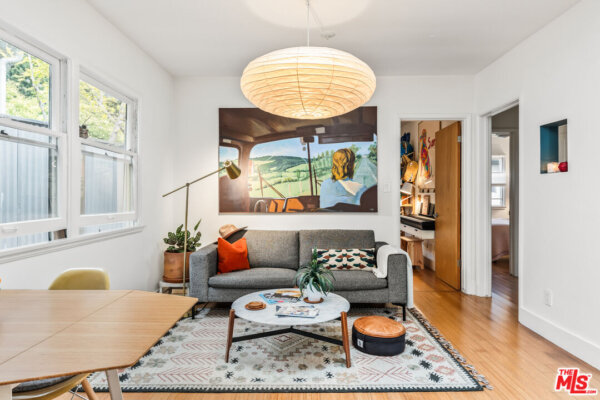4 Important Things to Know About Buying and Selling a Home at the Same Time

Unless you’re a first-time home buyer, you’ve been living with your parents, or you took a detour into the land of renting, there’s a good chance you’ll have to strike a balance between selling your current home and buying a new home at the exact right moments.
Buying and selling a house at the same time is both an art and a science. Whether you should try it or not partly depends on your financial situation (and your mental fortitude). Here are four things to know about buying and selling at the same time, from scheduling issues to contingency clauses.
It’s not for the faint of heart
“Certainly logistics and timing can be tough, as well as arranging financing when you are waiting for funds from the sale to put towards the house,” says Troy Palmquist, owner of the The Address Real Estate in Agoura Hills, Calif. He says both the stress level and the level of uncertainty is doubled since there’s a chance for something to go wrong with either or both transactions.
You may end up having to move twice if one deal is closing and the other one isn’t. “If you were to list your house and haven’t shopped yet, and you sell it in five days, then you’ll have to find a place to reside until you find another home,” explains Josh Latham, real estate agent and director of sales for RE/MAX Advanced Realty in Indiana. Even if you get lucky and immediately find a house you love, he says you’ll need to go through inspections and appraisals—and you don’t know what that might entail.
“This process is not for the faint of heart, that’s for sure, but take solace in the fact that it happens all the time and it can play out perfectly,” Latham says.
Be prepared for delays—and for those delays to multiply
However, Latham warns that you should be prepared for roadblocks and pitfalls. “Examples include financing falling through, inspections not being agreed upon, appraisals coming in low, or a buyer losing their job two days before closing and the whole deal falls through,” he says.
If any of these events occur, you could end up juggling two mortgages until both transactions close. Talbot Sutter, president and broker at Sutter & Nugent Real Estate in South Florida, refers to this scenario as the “snowball effect,” since every delay or extension could lead to another delay or extension, and another delay or extension. “With every extension—especially when financing is involved— there are loan commitments, rate locks, application deadlines, and many other factors that go into a closing that could all be affected and have to be agreed upon if changed.”
Financing itself could also be a factor when juggling two homes. “Securing financing at the same time could be problematic, and this may involve creative financing, a bridge loan, or using a HELOC as a down payment and then paying it off when your home sells,” says Jonathan Lerner, owner of Five Corners Properties in Scarsdale, New York.
Juggling both processes can lead to fatigue
You’re expending twice as much time and energy when you’re buying and selling simultaneously. On one hand, you need to keep your current home presentable at all times, which can be challenging if you have a family or you’re working from home. You’ll also need the flexibility to leave it when potential buyers arrive for a tour.
On the other hand, you’ll need to set aside time to view other properties yourself. With all of this to juggle, you could become fatigued fairly quickly. This could lead you to settle on a house you’re not really happy with, pay more money for a new house, or lower the asking price on your current home, just to get the process over with and return to a sense of normalcy.
Adding a contingency clause won’t solve all of your problems
Paying two mortgages—one for your former home and one for your new home—at the same time is obviously not ideal. But some folks are willing to do this to make the transition smoother.
“While paying two mortgages for a few months doesn’t seem like a big deal in the grand scheme of things, there’s no guarantee your original home will sell that quickly,” Lerner says.
To avoid complications, some buyers add a contingency clause in which the purchase of the new home is contingent on sale of the current home. This can be a good way to protect yourself and your finances, but it can also be problematic. “In today’s marketplace, we are seeing limited inventory causing many multi-bid situations, so it is important to always present your best financial picture to a home seller,” Lerner says. If you’re competing with a cash buyer who is ready to close as soon as possible and has no contingencies, you’ll be at a disadvantage.
“For this type of closing to go smoothly, the homeowner must have confidence that their current home is without contingencies in the sale and will close,” says Robert Callan Jr., a real estate agent at McGuire Real Estate in San Francisco. He says it’s easier to add a contingency in a buyer’s market. “However, if there is a contingency on the sale of the buyer’s home, you may need to put in higher bids than your competition in order to counterbalance the negative appeal of your contingency.”
Source: Apartment Therapy


